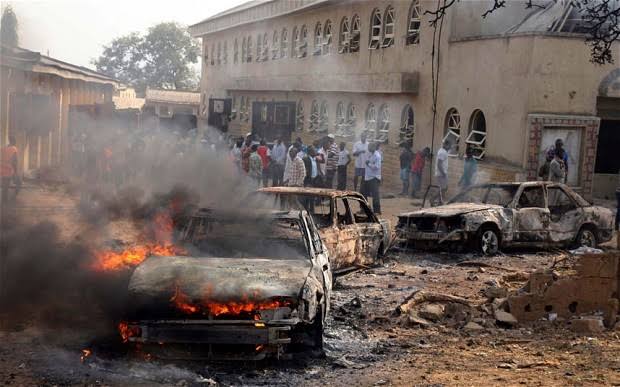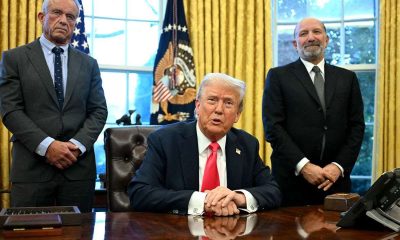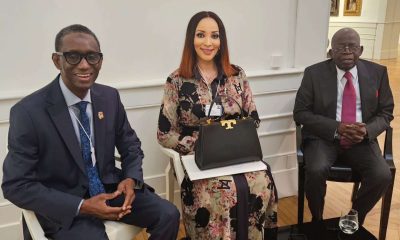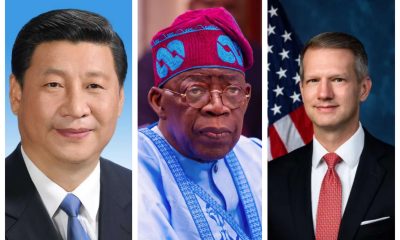Nation
US lawmakers push Nigeria blacklist over alleged Christian genocide, CAN rejects claim

A fresh controversy has erupted over Nigeria’s human rights and security record as United States lawmakers intensified calls for the country to be blacklisted for alleged “genocide” against Christians, even as the Christian Association of Nigeria (CAN) strongly rejected that narrative, insisting the killings affect all faiths.
Riley Moore, a U.S. Congressman, in a letter to Secretary of State Marco Rubio, demanded that Nigeria be redesignated as a “Country of Particular Concern” (CPC), citing what he described as relentless attacks on Christians. Moore argued that the designation should be restored to unlock diplomatic pressure on Abuja and suspend U.S. arms sales until it demonstrates stronger protection for religious minorities.
Quoting advocacy group Open Doors, Moore claimed more than 7,000 Christians have been killed in Nigeria in 2025 alone. He also noted that since Boko Haram’s insurgency in 2009, over 50,000 Christians had been murdered, five million displaced, 19,000 churches destroyed, and hundreds of priests attacked or killed.
“Just this year, a priest was kidnapped and murdered on Ash Wednesday, while 54 Christians were martyred on Palm Sunday. At least 250 priests have been attacked or killed in the last decade. Nigeria is the deadliest country in the world for Christians and the world stands by silently,” Moore wrote.
The lawmaker accused some state and federal officials of hostility to Christians, citing alleged closures of orphanages, forced conversions, and enforcement of blasphemy laws. He recalled that Nigeria was first designated a CPC under President Donald Trump in 2020, but removed from the list by Joe Biden. He urged Rubio to restore the designation, stressing: “We can’t turn a blind eye as our brothers and sisters in faith face martyrdom for proclaiming the name of Christ.”
His intervention followed a bill introduced by Senator Ted Cruz titled the Nigeria Religious Freedom Accountability Act of 2025, which seeks to reinstate Nigeria’s CPC status and impose sanctions on officials accused of complicity in religiously motivated violence. “Nigeria has become one of the deadliest places in the world to be a Christian,” Cruz said, adding that his bill was meant to ensure accountability for officials who “turn a blind eye, or worse, participate” in persecution.
The push from Washington has, however, sparked strong reactions at home. CAN, the umbrella body of Nigerian Christians, dismissed claims of a targeted genocide, arguing that the crisis of killings is driven by terrorism, banditry, and criminality that affect both Christians and Muslims.
Speaking to The Guardian on Tuesday, CAN’s Director of National Issues and Social Welfare, Abimbola Ayuba, stressed that the killings, though alarming, are not faith-specific.
“In some Christian-dominated states like Benue, it may appear as if Christians are being targeted. But this same insurgency has claimed several Muslims in their early morning prayers. They attack them in their mosques, slaughter them, kidnap people, and burn villages. The bullets don’t look for a Christian or spare a Muslim,” Ayuba said.
He accused foreign advocacy groups of exaggerating the crisis to attract sympathy and external intervention, warning that blacklisting Nigeria could hurt all citizens.
“Sometimes, our situation is being taken advantage of by groups who know what they benefit from foreign interests. Why run to America when you have a Senate here where you can file your petition? If they place Nigeria as a country of particular concern, all of us will suffer,” he warned.
Ayuba maintained that Nigeria’s security challenges require a homegrown, all-of-society solution rather than foreign prescriptions. “We must unite as Nigerians to stop this insurgency. Christians, Muslims, and people of other faiths are all victims,” he added.









